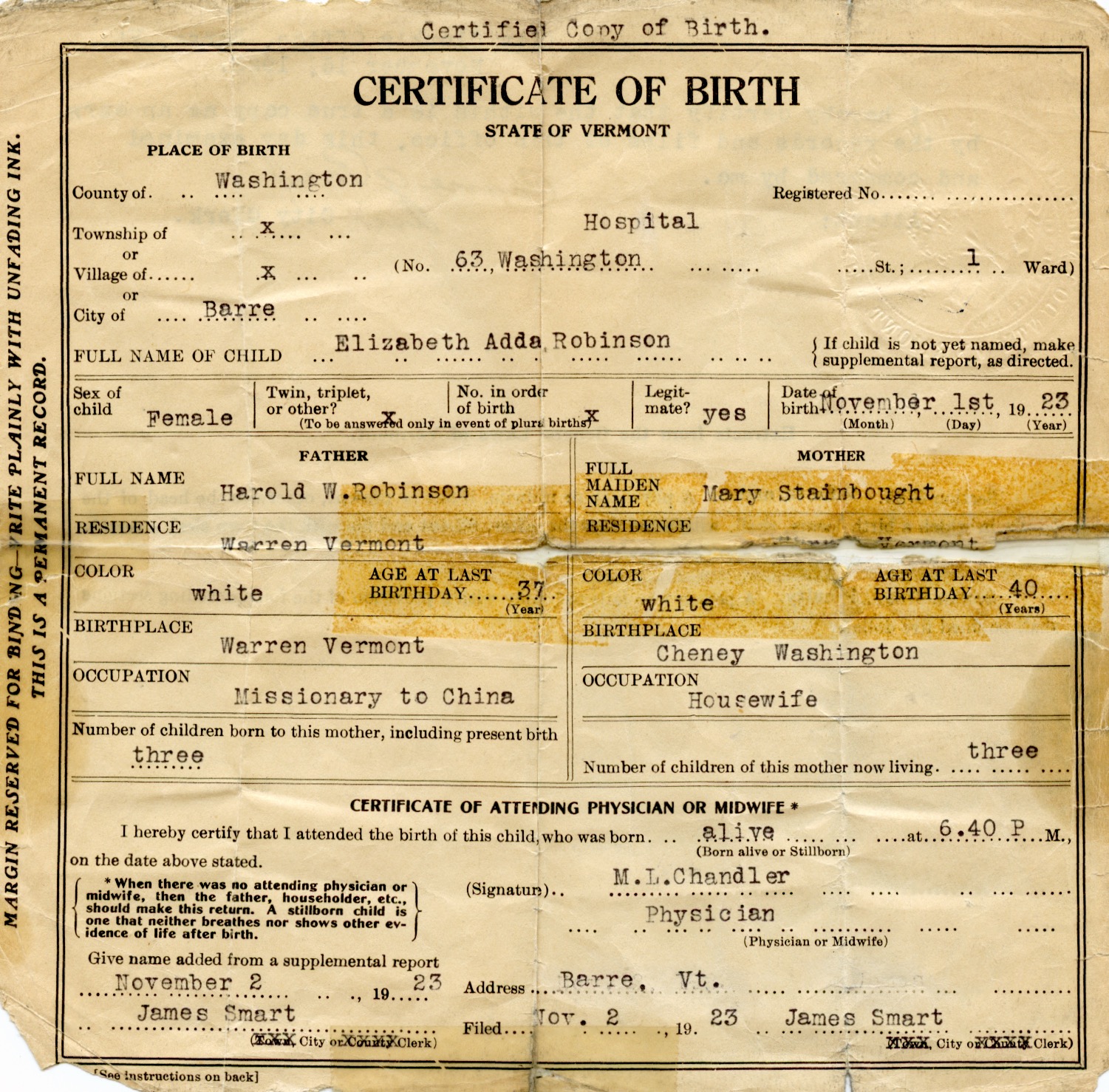(Click any image within to see full / hi-res.)
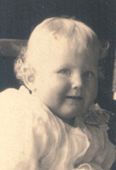
|
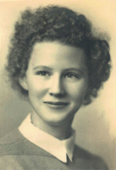
|
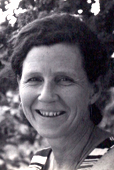
|
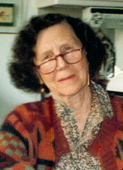
|
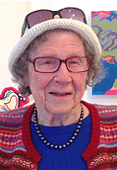
|
- Chronology
- 1 Nov 2023: Harold and Mary
- Growing Up In China
- M.A. in Byzantine Medieval Art History (1973)
- M.S. in Counseling Psychology (1975) & Beyond...
- Recordings
- Family Tree
- Guest Book: Share Your Memories
- In Memoriam, 17 April and 22 August 2016
Known by three names, Elizabeth was born in Barre, Vermont on November 1, 1923. The youngest of three children, she grew up in China and beginning at age six, took on the name of Lepai (the ‘p’ is pronounced as ‘b’). In her middle years and beyond she was known to many as Liz. As she describes this:
I like my brothers, had several names. The Chinese name I was given shared the first word with that of both brothers: “Kui”, meaning great, or important. The second part “Jen” might be translated as “precious” or “pearl”. A special vegetable name given my brothers by our cook, never was gifted me; I was simply known to him as “Kui Jen” Within the family my pet name was “Little Bit” which I carried until the Hunter family moved into our compound. Jean, just my age, became my inseparable playmate. When our brothers wanted us for some reason or other, they combined our two names into a much used Chinese phrase: “Lepai gee?”, meaning “what day of the week is it?” (in those days most Chinese needed to know what day it was more than what hour it was). When Jean and her family left our compound, I simply acquired the name of “Lepai”. It was so deeply imprinted, that when I went off to college in the U.S., I had to decide whether I would say my name was Elizabeth (which I hadn’t been called all through boarding highschool), or “Lepai”, by which I had been known ever since Jean Hunter came into my life around age 6. I choose to be “Lepai” and to this day I am still known by my oldest friends and family by this unusual Chinese name, which by the way is also the name of a famous Tang Dynasty 8th Century poet.
The above is excerpted from her autobiographical essay, “First Memories.”
